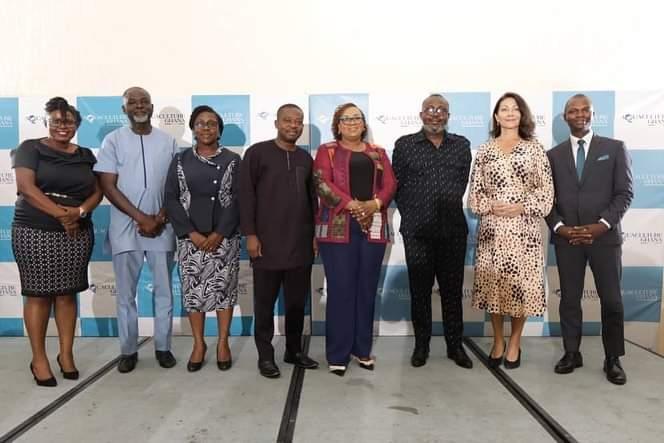…as Chamber of Aquaculture-Ghana launched
The Chamber of Aquaculture-Ghana has called on government and other stakeholders to extend support to the sector through collaboration in order to create massive jobs for the youth and address challenges facing the industry.
Data from the Fisheries Commission indicates that the total number of fish farms operating in the country’s aquaculture space comprises six large farms, 14 medium farms, and 2300 small farms – figures that the chamber believes could be far better should the sector be given the needed support from stakeholders.
Speaking at its official launch, CEO of Aquaculture Chamber-Ghana, Jacob Adzikah, bemoaned the fact that the industry has great potential but is beset with many challenges that are stifling its growth, making it unable to create the needed jobs and rake in revenue for the state.
Mr. Adzikah, however, noted that the enormous challenges facing the aquaculture industry cannot be addressed alone by government as policy alone cannot be the solution; hence, the chamber’s call for collaboration with other stakeholders to address issues such as marketing, standards, among others that are suppressing growth prospects of the sector.
It is against this background that the Chamber of Aquaculture-Ghana wants to use its platform to bring together government and its agencies and other stakeholders in the sector to deliberate on matters affecting the industry.
To achieve this, the chamber is using its platform to organise three events in each year, namely: Conference, Exhibition and Awards, to set the tone for such engagements to promote the industry.
The conference seeks to bring all stakeholders together to interact and share new ideas on how to push Ghana’s aquaculture industry to the next level. It will bring together experts, regulators, industry players, investors and donors to engage one another on challenges or opportunities in the aquaculture industry. The conference is slated for April 26-27, 2023 in Accra on the theme: ‘Fostering Stakeholder Collaboration for Sustainable Aquaculture Industry’.
The exhibition also seeks to enable stakeholders to display the latest innovative technology and products for the aquaculture industry, and further promote the consumption of farmed fish in Ghana.
And the awards component will recognise those who have made a difference or are making a difference in Ghana’s aquaculture industry.
Fisheries and Aquaculture Minister, Madam Mavis Hawa Koomson, at the launch, said government is implementing various interventions for a sustainable sector.
She said the Ministry of Finance has engaged MoFAD on financing scheme for the Aquaculture for Food and Jobs (AFJ) initiative.
The main objective is to create direct and indirect jobs for unemployed persons along the aquaculture value-chain, as well as increase total fish supply in the economy.
The ministry envisages to employ about 200,000 people over the next five years under the AFJ programme when it is finally rolled out nationally.
Chief Executive of the Association of Ghana Industries (AGI), Seth Twum Akwaboah, explained that the formation of the platform was long overdue as matters pertaining to fisheries and aquaculture production are key issues which cannot be ignored.
He said aquaculture in Ghana has grown from small beginning to a significantly primary industry in the last 20 years, producing some of the world’s most farmed fisheries such as the Nile tilapia and the African cat fish.
“The AGI is proud of the Aquaculture Ghana platform, and we are eager to see thought leadership conversations around the sector in the coming years. We have an obligation to protect the aquaculture industry by ensuring a sustainable, productive and buoyant future for the sector,” he said.










